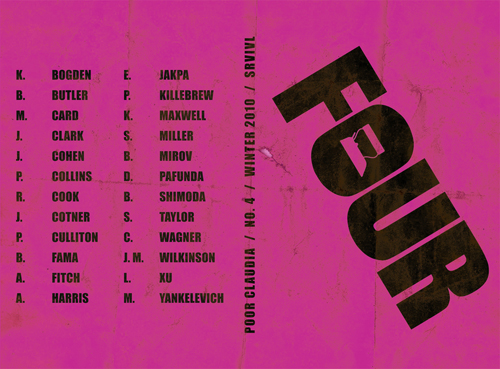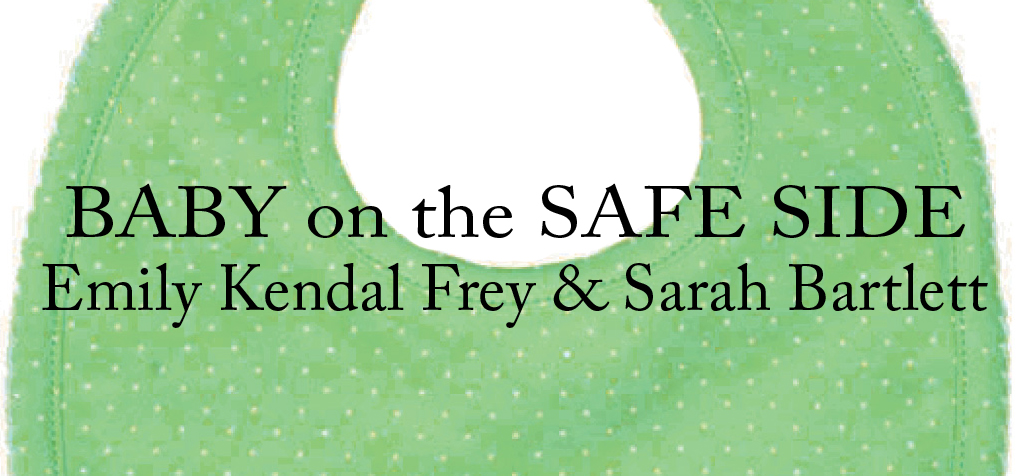25 Points: Sorrow Arrow
 |
Sorrow Arrow
by Emily Kendal Frey
Octopus Books, 2014
92 pages / $12.00 buy from Octopus Books
|
1. I read Sorrow Arrow in June.
2. “What was the last book you read/what was your favourite, lately?” A friend of mine who was out of town for the summer sent me this text message. I told her it was Sorrow Arrow by Emily Kendal Frey. When she got back into town a few months later I loaned it to her.
3. If you’re like me, once a year or so, you read a book that makes you rethink the way you’ve been writing entirely and you come away from it sure beyond a shadow of a doubt that the only way to write is the way that writer does it.
4. Sorrow Arrow was one of those books. When I was finished with it I just felt the entirety of all the poetry I’d ever written pass into obsolescence.
5. My first exposure to Emily Kendal Frey was when we both had prose poems published in Issue 6 of Banango Street in January. I felt privately certain they only published my poem because it was a prose poem roughly the same length as hers and together the two felt like they were kin somehow — cousins of about the same age who look just like each other but only met for the first time in their late teens. Hers was the more successful cousin by far.
6. I added her on Facebook and a few weeks later she posted as a status the sentence “She is born!” and the book’s cover, a faceless blankness wrapped in a green wreath, whirling, encircling sheaves of grass.
7. Two weeks later she posted that the book was available for order and I ordered it immediately.
8. Here is one of the poems: “A radiation plume is making its way to us/We write it down so we won’t think/Lap dogs sprinkled with acid snow/I got on the plane and sat back/Out the window I regretted complaining/I’m sorry I wasn’t able to get inside your color/The sky was cobalt, deafening/I die so I can live/Outside category” (p. 57)
9. At the centre of Sorrow Arrow is a tragedy. There is a tragedy at the centre of every great book of poetry, I imagine.
10. Frey’s tragedy runs through the poems—none of which have titles—like a skein of gold, a vein you can see just beneath the skin, a tungsten wire that glows bright and hot to the touch.
October 6th, 2014 / 12:00 pm
(Eggs and Bacon): The Poem as Memoir?

What is memoir in poetry? We read prose memoirs and see how lives are stretched taut around themes: a chronology of water, a debilitating illness, a drug addiction, a nomadic childhood, a strange religion, insomnia-driven thinking. Themes become umbrella girding; living, the fabric that fills it out. But where does poetry fit into memoir? We could think about the confessional in poetry and say, yes this is the place where poetry and memoir meet. Plath on suicide attempts: “I have done it again. / One year in every ten / I manage it–” or Lowell, “My mind’s not right…I myself am hell.” Depression and mania are easily encapsulated states of being, but all poets write their lives, confessional or not. When Simic writes, “My mother was a braid of black smoke,” we assume he’s not writing fact-truth. Maybe he’s writing dream truth or metaphor truth. Maybe he’s just writing, and I’m extrapolating.
I started thinking about this when a poem of mine called “Man Builds a Guitar” went up online recently. It’s basically a persona poem in Jack White’s voice. I wrote it after watching the documentary It Might Get Loud and not being able to shake Jack White’s weird tinkering and instrument making from my head. So, it’s a persona poem, but it embodies themes and emotions I was thinking about at that particular moment in time. When I say, “I heard everything disappearing” what I meant was that my marriage was over and life as I knew it was evaporating in front of my eyes. I’m using the imagery of my childhood in the South and the sounds that take me back there to get at the particulars of silence-after-a-storm. This is a memoir poem even though it’s a persona poem. I mean, I don’t know Jack White, but I know me.
Matt Hart has a poem called “Sailing the Gut Boat,” that begins, “I made you a thing with no tongue / and gallons of new-fangled fog. I made you / a thing with nothing and nobody—not even / a surrealist screaming into an atlas….” Hart reminds us that you can fashion people and events into whatever you want (a nothing, even) on the page, but the truth of them still remains behind that fashioning.
Or take a short couplet poem, “Future,” by Emily Kendal Frey:
Poor Claudia 4 ++
The fourth issue of Portlandian magazine and press Poor Claudia is alive:

More specs and info and purchase points are available here.
Or, if you are smart and thrifty, you can involve yourself in the PC Subscription Package, which includes for $30 everything PC will release in 2011, including two issues of the journal, chapbooks, nonbooks, broadsides, and more.
While you’re at it, the back catalog is teeming, and all beautiful crafted objects: James Gendron’s Money Poems and Emily Kendal Frey’s Frances are both in particular fantastic.
Blunts

Emily Kendal Frey’s THE NEW PLANET is now available from Mindmade Books. Some of these poems recently leapt into Real Poetik
PITY
I feel sorry for people who fall in love with other people.
We wait on the boat’s deck to see a whale.
What we see are waves.
Dead-hearted tomatoes bobbing up and down.
Ocean of hearts.

